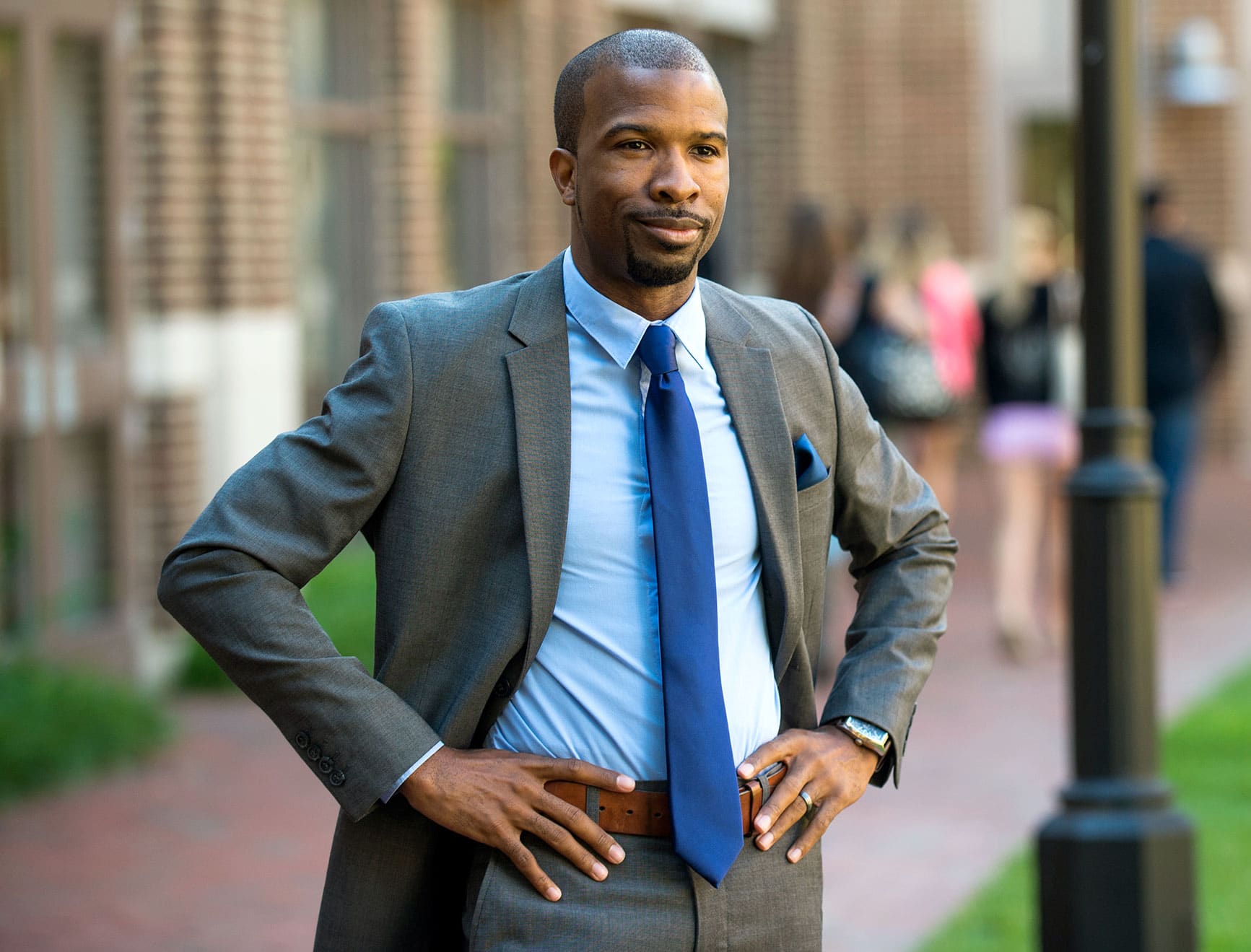Virginia Commonwealth University
Annual Report 2020-2021
A teacher for teachers

Associate Professor LaRon Scott, Ed.D., may be exploring the nationwide, systemic issues that lead to teacher shortages and inequities in special education — but his interest began closer to home.
Scott was first introduced to the special education system when supporting his own sister, who has a disability. Scott wanted to support her and his family, and advocated for her to receive the academic and social services she needed. Along the way, he became intimately familiar with how students, parents, teachers, and others were engaged in the process.
“That was the beginning of what has been a great career, and a great learning experience,” he said.
Scott went on to get his teaching license and enter the classroom where, again, he had a realization. Looking around the school, he saw few other teachers of color and even fewer Black men.
He started looking into the systemic and structural barriers that keep potential Black educators from enrolling in higher education programs and staying in the profession once they enter the field. Then, as an associate professor of counseling and special education in VCU’s School of Education, he applied both his research and personal experiences when preparing his own students. In particular, he hopes these future educators will join a movement to advocate for policy and practice changes — such as improving teacher pay and developing alternative pathways for members of the community to become teachers — that will further cultivate a diverse teacher workforce.
We need to see Black teachers and teachers of color in positions to make decisions and be supportive of learning experiences for all students.
His research has struck a chord. Scott has received more than $6 million in grants. He has been published in more than 40 peer-reviewed journals and has written two books and 14 chapters. And, in 2021, he received the University Award of Excellence, one of VCU’s highest honors for faculty, in recognition of his superior teaching, scholarly activity, and service.
More importantly, though, Scott hopes his research, teaching, and mentorship will help more teachers of color enter — and stay in — the profession. After all, he said, research has shown that Black teachers improve academic outcomes and set a higher standard of achievement for Black students. In addition, he saw that, for students of color, being exposed to one Black teacher before the third grade improved their chances of going to college.
“It’s critically important that teachers of color are part of our bureaucratic spaces,” he said. “Part of that is showing all students — not just students of color — that there’s a balance of power. We need to see Black teachers and teachers of color in positions to make decisions and be supportive of learning experiences for all students.”